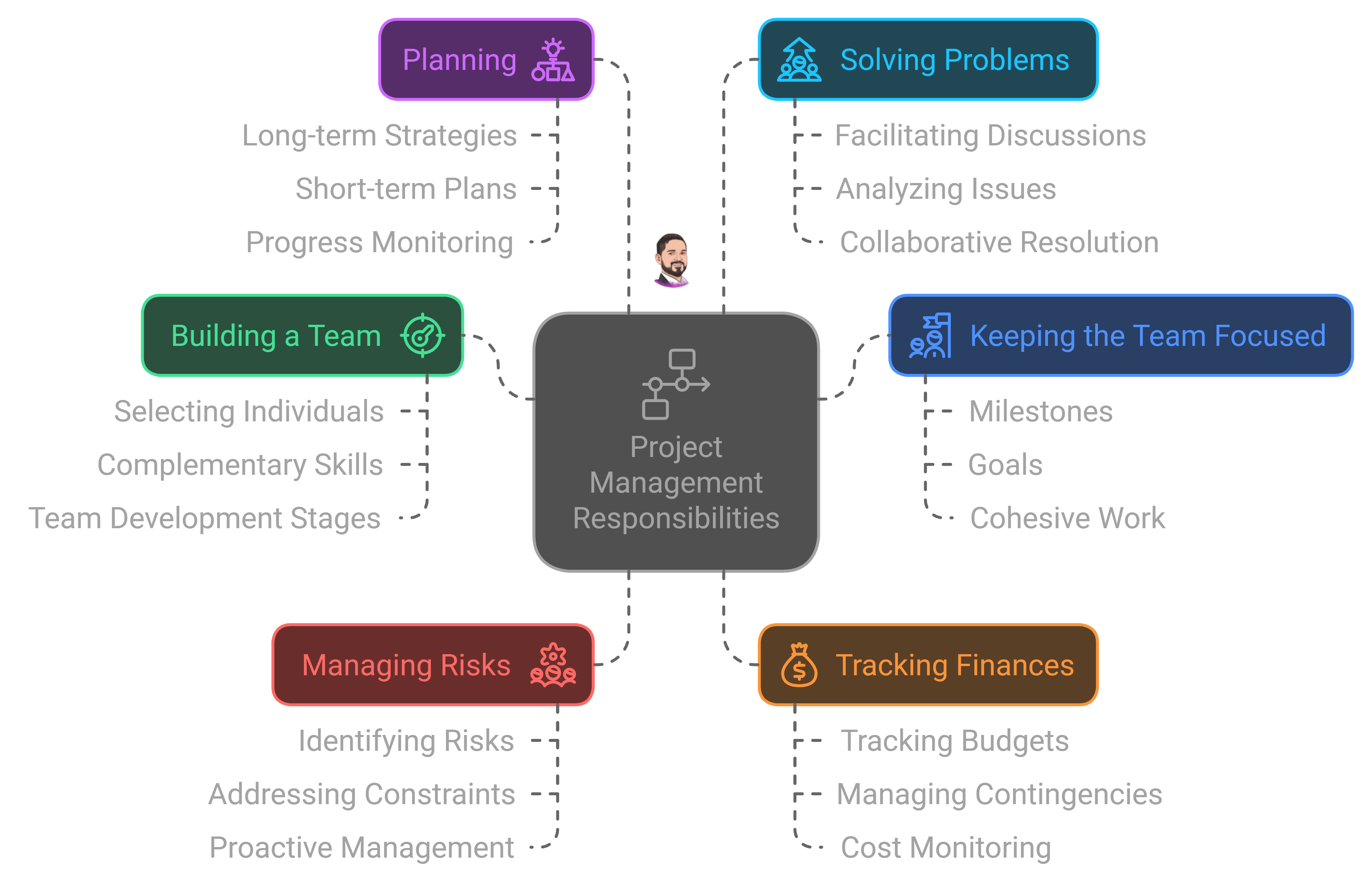
After spending more than 12+ years in the IT industry, I have learned that to be a successful PM, the basics of project management play a key role in the entire project management lifecycle.
Effective project management is the cornerstone of any successful initiative. A good project manager not only guides their team but also ensures every aspect of the project aligns with its objectives. Here are six habits that top project managers adopt to drive results and enhance team performance.
1. Build a Strong Team
The success of a project begins with assembling the right team. According to Tuckman’s team development model, teams progress through stages like forming, storming, and norming before they achieve peak performance in the performing stage. A skilled project manager selects members with complementary skills and encourages healthy conflict to build trust and accountability. Studies show that cohesive teams can be 20-25% more productive than misaligned groups.
2. Keep the Team Focused on Goals
Clear, measurable goals are critical to maintaining team alignment. A focused team is 64% more likely to meet project objectives on time. Effective project managers establish milestones and ensure all team members understand their roles in achieving these targets. This focus creates momentum, fosters collaboration, and minimizes distractions.
3. Proactively Manage Risks
Risk management is vital for project continuity. Research indicates that 70% of projects encounter unforeseen risks, but proactive identification and mitigation can reduce their impact by up to 30%. Project managers should develop a risk register to map potential obstacles, assess their likelihood and impact, and create contingency plans to address them promptly.
4. Monitor and Manage Finances
Financial oversight is crucial to prevent overspending and resource depletion. A report by the Project Management Institute (PMI) highlights that 37% of failed projects cite budget overruns as a primary cause. Successful project managers track budgets, review financial forecasts, and maintain contingency funds to ensure smooth operations throughout the project lifecycle.
5. Always Have a Clear Plan
A well-structured plan is the backbone of project success. Projects with clearly defined plans are 2.5 times more likely to achieve their goals. Good project managers balance long-term strategies with short-term, actionable tasks, ensuring progress is consistently monitored and adjusted as needed. They utilize tools like Gantt charts, Agile boards, or Kanban to visualize timelines and manage workflows.
6. Master Problem-Solving
Problems are inevitable, but the ability to resolve them efficiently can make or break a project. According to PMI, 88% of high-performing teams credit their success to problem-solving frameworks that involve the entire team. Effective project managers act as facilitators, guiding the team in analyzing root causes and developing collaborative solutions. This not only keeps the project on track but also fosters innovation and team cohesion.

Conclusion
Good project managers are more than task coordinators—they are strategists, mentors, and problem-solvers who drive their teams towards shared success. By building strong teams, maintaining focus, managing risks, tracking finances, planning effectively, and solving problems, project managers can significantly enhance their project outcomes and team performance. These habits, grounded in proven methodologies, are the hallmark of project management excellence.
Do let me know your views/suggestions/additions in this context. I can be reached at: mangesh(at)mangesh(dot)in 🙂

